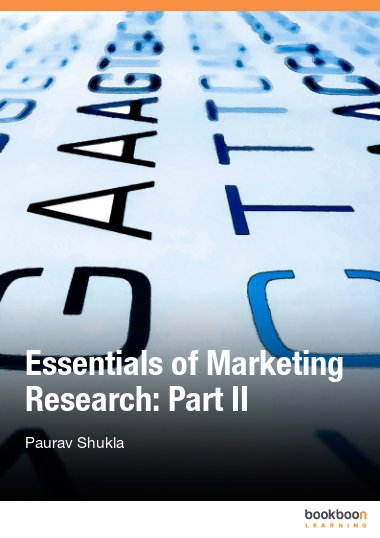The field of marketing has experienced unprecedented developments in the 20th century which have continued at no lesser pace in the 21st century. Within the last few decades shifts have been observed in the marketing thought, marketing practice and every direct and indirect issue and function related to marketing. The constant shift in the field has led to many interesting developments including the field of marketing research.
Despite the accessibility and prevalence of research in today’s society, many people when asked, share common misperceptions about exactly what research is, how research can be used, what research can tell us, and the limitations of research. For some people, the term “research” conjures up images of scientists in laboratories watching guinea pig and chemicals experiments. When asked what is ‘marketing research’ people associate it with telemarketer surveys, or people approaching them at the local shopping mall to “just ask you a few questions about your shopping habits.” In reality, these stereotypical examples of research are only a small part of what research comprises. It is therefore not surprising that many students (and managers) are unfamiliar with the various types of research methods, the basics of how research is conducted, what research can be used for, and the limits of using research to answer questions and acquire new knowledge.
As an active researcher, academic, consultant and trainer, I find the students and managers I interact with struggling to understand the various issues associated with marketing research. When probed they express three major concerns: 1. incapability to comprehend research language used in most books; 2. the coverage of most books and its usage in real life; and 3. Relevance of the examples used. Most books in the subject area are comprehensive and cover the subject in minute details but majority of the time readers require an overview and not the most in-depth understanding of a specific phenomenon. The heavy emphasis on technical language and the little found use and relevance of the books disengages the readers from purchasing, reading and understanding the research books and in turn these readers remain distant from the research process.
Therefore, there seems a need for a research book which can cover the relevant issues in a simple and palatable form for the readers and make them engaged in the process of research. This book attempts to attend to the above stated issues by introducing technical and analytical concepts in a very accessible manner. Some of the readers may get really interested in the field of marketing research after reading this book and so this book can be called a primer and simple background for understanding advanced technical textbooks in the field.
Every attempt has been made to keep this compendium simple and accessible however sometimes the use of jargons (technical terms) becomes necessary. In such cases, examples have also been added to make it easier for you to understand the phenomenon.
At this juncture, I would like to thank Kristin and Johan at Ventus publications who motivated me for this endeavour from conceptualization to concretization. I also take this opportunity to thank my students, friends, and colleagues, who have created this learning experience for me. Their discussions, remarks and debates have helped me learn and share this learning with you via this compendium. My special thanks to Ekta, my wife, without whose sacrifice and constant support this compendium would not have seen the light of the day. Hence, I dedicate the book to her.
Brighton, 29 Oct, 2008
Paurav SHUKLA

